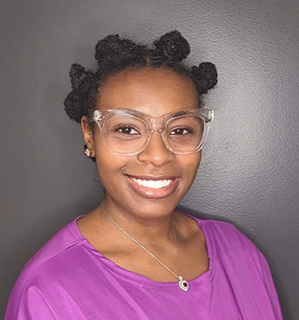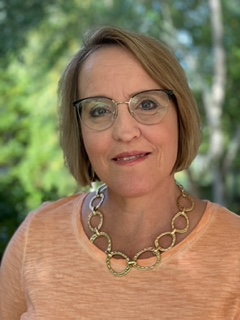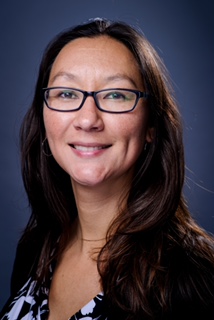
CROs Offer Good Jobs, Chance to Make an Impact
[Editor’s note: For more information from NCBiotech about the CRO industry, the Collaborative, kinds of jobs and education programs, please click here.]

The U.S. economy hit a historically low unemployment rate of 3.5% at the end of 2022. Meanwhile, the pandemic is still causing workforce disruption, including higher employee turnover.
Rapidly growing industries such as contract research organizations (CROs) are finding it difficult to hire enough employees to coordinate and manage clinical studies involving thousands of participants to determine the safety and effectiveness of new drugs, therapies and medical devices that could benefit millions of people in the U.S. and globally.
In North Carolina, the “birthplace” of CROs, positions are plentiful and generally offer good salaries, benefits and job security. Openings range from administrative support, clinical study monitoring, project management, financial and regulatory oversight and patient recruitment. Employers include private contract research organizations working for pharmaceutical or other companies, and clinical trials groups within medical schools such as Duke, Wake Forest, East Carolina, the University of North Carolina at Chapel Hill, and the Campbell University School of Osteopathic Medicine.
Some jobs don’t require a four-year degree, though many do. The state’s community college network provides tailored clinical research courses and associate degrees, and some colleges and universities offer specific programs designed to help students, career-changers and people entering or re-entering the workforce prepare to work in the CRO field.
But contract/clinical research is still not a well-known career option. “We have to tell our story to attract applicants and strive to make progress on the diversity front,” IQVIA executive Richard Staub told the N.C. Chamber recently. IQVIA started in N.C. and is not only the first, but also the largest CRO in the world. IQVIA is a member of the North Carolina CRO Collaborative, coordinated by the North Carolina Biotechnology Center.
Like many in the field, neither Jazmin Barnes nor Shelly Fincannon planned on a clinical research career, but each has found success and fulfillment in the field.
‘I love making an impact’
Barnes grew up knowing about clinical research from a neighbor who had a CRO consulting business, but she never considered it as a career option.
“I have a B.A. in psychology from NCA&T and was working in mental health after college,” she said. “After my dream of being a psychiatrist pivoted, that’s when my mother said I should look into it [clinical research]. Barnes did “a lot, a LOT” of research into the field and was surprised to learn how many different pathways CROs offered.
“I also connected with someone really seasoned and took a clinical research class that helped me speak the language with employers,” she added. The class, taught through a private company, “wasn’t that expensive and gave me a good foundation.”
The class led to her first CRO job, as a clinical trials assistant (CTA). CTAs play a pivotal role in clinical trials by providing administrative support and creating and maintaining records. Gaining experience as a CTA can lay the foundation for becoming a clinical research associate (CRA), responsible for all clinical site management and monitoring, she said.
Barnes didn’t find too many challenges in coming to a clinical research position with a non-science degree. She acknowledges she has to look up terms frequently and has no shame about it. “I’d rather look up everything and be right than say something that’s completely wrong.”
When interviewing for the CRA I position with Syneos Health, she recalled, “I sold myself on my excellent skillset that would translate well into that role.” And, while she only had 18 months of experience through her CTA work, versus the two years employers often seek, Barnes was able to point to the clinical research course, an internship and on-the-job CTA experience--all helpful in being hired for the CRA position.
But as a now-experienced CRA, she understands employers’ desire to have those two years: “You don’t know what you don’t know until you’re in it,” she said. Managers she works with emphasize those wanting to get into the field do need to have knowledge and understanding of clinical research, perhaps by starting as a study coordinator or taking clinical research courses.
She finds the following skills important to being a successful CRA:
Communication. “We are the main liaison between CTMs (clinical trial managers), the site and the sponsors. Things often move very fast, so it is important to be able to articulate what needs to occur and who needs to know.”
Time management. “We are busy, busy, busy! You have an ongoing to-do list of tasks, along with traveling for site-monitoring visits, reports and othering things. You must prioritize what needs to be done immediately and what can wait for a few hours or days,” she said.
Attention to detail and critical thinking. She emphasized the many small details involved with conducting a trial, some of which may be overlooked. “As the trial monitor, we think outside of the box, pay attention to details and document all that happened. If it wasn't documented, it did not happen,” she said. Things also can change rapidly, she said, and monitors are relied on when it comes to spotting and solving issues.
She also encourages CRO employees to maintain work-life balance, despite the hectic pace and importance of the work. “It is crucial to have a balance, otherwise you will get burned out very quickly. Know when to take breaks, time off and log out for the day,” she advised.
She really enjoys her job in clinical research. “I love making an impact,” she said, as well as “getting to know new people and learn different things about people and clinical research.”
The position provides her with an opportunity to pursue her other passion: diversifying the clinical research industry. She leads the brand ambassador program for Black Women in Clinical Research. According to its website, BWICR “is a network of black women who are interested in a career in clinical research or currently working in the industry. We come together to educate, empower, support, and help black women thrive in the clinical research industry.” Brand ambassadors spread the word about the organization and the clinical research industry.
Barnes often turns to this group, or to other co-workers, when she needs help with a work issue. She also makes sure to continue networking through LinkedIn, Instagram, Facebook and Twitter. “Networking through social media is really important,” she added, especially for those seeking jobs. “The recruiter for my current job contacted me through Facebook.”
In addition to networking, job seekers also need to be persistent. “Just keep applying and emphasizing your skillset and don’t take it personally if you’re turned down,” she advised. She recommends those interested in clinical research positions with no experience consider applying for jobs on the operations side, such as finance or budget. No matter what CRO job you have, she said, “You’ll learn a lot.”
‘Eureka! I could do that!’

Fincannon has always loved science and math. She spent 20 years teaching the subjects at the high school level while raising a family. After two decades, however, she was ready for a change. She was interested in the medical field—but wasn’t certain what her next career would look like. It took surgery to find out.
“I knew nothing about clinical research, but I’d had major sinus surgery at Duke and I was in a clinical trial. I said, ‘Eureka! I could do that!’”
She already held a B.S. in secondary education in math and science, augmented by community college programs in microbiology and trigonometry and physics. Still, she knew additional education and training would help obtain her career goal.
She enrolled in, and completed, Durham Technical Community College’s clinical trials research associate degree program, then did an internship at Syneos Health in study start-up. The course prepared her to sit for the professional certification examination, another valuable employment “box” to check.
Fincannon credits Sharleen Traynor, Ph.D., director of DTCC’s clinical trials research associate program, with her success there and subsequent employment at Duke. “Dr. Traynor was awesome. She was encouraging, cheerful and she kept up with her students,” Fincannon said.
Traynor described Fincannon as “a rock star” with a “great background” for clinical research. She agrees with Fincannon and Barnes about how important transferrable skills can be in making the transition to CROs, as well as relevant education and training programs, including internships. She strives both to teach and to advocate on behalf of her students, connecting them with prospective employers.

Traynor holds free monthly online sessions, 6-7 p.m., for anyone interested in the DTCC clinical trials research associate program. The next events take place April 4 and May 2.
Fincannon found her Syneos internship incredibly useful and informative. “I feel fortunate to have had the internship experience. The company was very good to me and I enjoyed it,” she said. “It really helped me to understand the CRC role in clinical research versus working for a CRO, and I realized a CRC position in the clinical setting was the way for me to go,” she added. She knew CROs wanted two years of experience. “I had about 18 months, including my internship,” she said.
Today, Fincannon holds a job she loves: clinical research coordinator for Duke University School of Medicine in the Department of Cardiothoracic Surgery. She works with cardiothoracic surgeons, researchers, other team members and current and prospective study participants.
She often has to explain her new clinical research career to friends. “People think I’m in a lab doing things with beakers,” she said. “I identify patients who may be eligible for certain clinical trials, then I speak to the physician in charge to determine if the patient would be appropriate for the trial and get permission to talk with that patient.”
If the patient is interested in participating in the trial, Fincannon explains the benefits and risks and many other details. “It’s really a lot like teaching,” she added, “Right up my alley.”
She agrees with Barnes that networking is very important to those seeking a clinical research career. “I was very fortunate our research practice manager called the Durham Tech program asking for a recommendation for a new graduate who could fill an immediate need for a CRC,” Fincannon said. The program recommended Fincannon, who then applied and was hired for the position.
She also agrees with Barnes that prospective CRO employees must possess outstanding attention to detail and exceptional organizational skills, as well as excellent teamwork abilities and strong individual motivation.
“I literally thought I would never learn this job,” she said, “but by setting up my system of checkboxes, organizing my information and really understanding each study, I am able to help my team succeed.”
